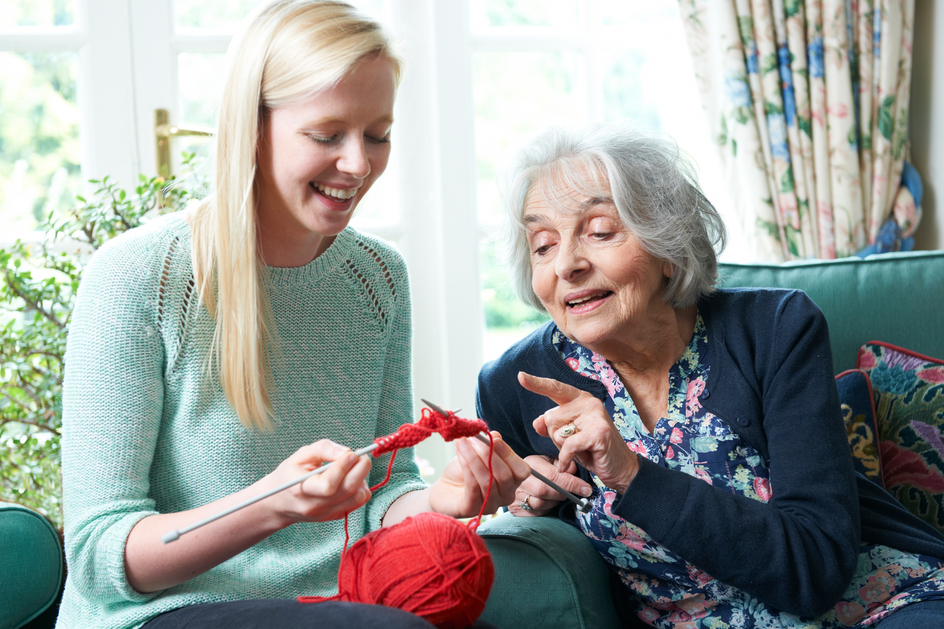
Living with Alzheimer’s or a related dementia isn’t easy for seniors or their loved ones, but your visit can be a great source of support. Heather Palmer, a cognitive well-being specialist, offers these tips for making the visit enjoyable for everyone.
Be prepared
Speak to team members or family to find out a time to visit when your friend will be most cognitively alert: it could be over a mealtime or during an activity they enjoy. Palmer recommends arriving armed with conversation topics or old stories supported by mementoes, such as photos, an old college jacket — whatever connects you. Read about dementia and Alzheimer’s in advance so you have a better understanding of what to expect from someone with brain-related changes.
Focus on communication
Pick a quiet place to meet so noise and distractions don’t get in the way of your conversations. Use simple sentences, give the person time to respond, and don’t hesitate to prompt a senior by repeating what you said. If your friend goes off on a tangent, try to jump on board their train of thought instead of bringing them back to yours.
Plan for behaviour change
Just as no two people are alike, no two seniors with dementia will behave exactly the same. Some may act giddy, flirty, playful, elated, confused, scared, childlike, unmotivated, anxious, sad or distant. You may see the person crying, pacing, fidgeting or acting like there’s a pressing need to go somewhere or do something. “A visitor might feel insulted that she’s come all this way and all the senior is doing is talking about leaving,” says Palmer. “It’s good to understand this may happen so you don’t take the behaviours personally.” If you’re nervous, check in with a team member upon arrival at an Amica Senior Lifestyles residence to find out if there’s anything you need to know about challenging behaviours, and how you might handle any that arise. “Memory Care team members know the residents and will keep the visit on their radar,” says Palmer.
Time to connect
Engage in an activity or conversation that taps into your friend’s past. It’s helpful for seniors with Alzheimer’s or a related dementia to have someone with whom to reminisce and share memories. Using touch and nonverbal reassurances can help make conversations more interactive and meaningful. From a cognitive perspective, your visit is helping nurture and strengthen the brain. “Conversing, engaging, digging from the past and incorporating it into conversation is one of the best brain exercises you can get,” says Palmer. “There’s a good chance the person won’t remember you, your visit or the conversations you had, but they will remember how it made them feel,” Palmer says. “Even if you’re just smiling and holding hands, seniors benefit from that on so many levels.”
Find out how residents are enjoying great amenities, activities, flexible dining and personalized service at Amica residences. Book a personal visit today.
About Dr. Heather Palmer
Dr. Heather Palmer is a cognitive aging and dementia specialist with more than 30 years of clinical and scientific experience. She focuses on helping individuals improve the way they think, feel and function. Heather developed cognitive well-being programs for Amica with a focus on Memory Care and Assisted Living.
